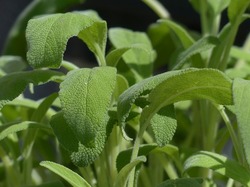
The natural process of menopause is inevitable but the good news is that its pains can be managed with natural herbal medicine and the other good news is that women have time to prepare for the menopause.
The first stage of the menopause is called the perimenopause and it can begin anywhere between two to ten years before the menopause. It is a time when hormone levels fluctuate widely and oestrogen production begins to gradually decline.
The most common symptom of the perimenopause is a change in how the menstrual cycle works. This can result in more or fewer periods, lighter or heavier bleeding, and often a change in symptoms and severity of pre-menstrual syndrome (PMS).
PMS symptoms of mood swings, swollen breasts, and stomach cramps may worsen. Other symptoms can include hot flushes, difficulty in sleeping, vaginal dryness, and headaches. Every woman’s experience of the perimenopause is different.
Making changes to improve health can greatly reduce the severity of these symptoms. The key is improving diet and taking regular exercise. Diet should consist of plenty of vegetables and fruit-providing fibre, vitamins, minerals and other phytonutrients.
Protein sources should ideally consist of chicken, fish and legumes such as beans and pulses. Increasing the intake of legumes, including soya, together with flaxseed provides a source of phytoestrogen and is effective way of modifying the effects of fluctuating oestrogen levels.
It is important to prevent weight gain by cutting down on processed foods that are high in refined sugar. Exercise helps control weight, reduce hot flushes and raise mood. It is possible to include exercise such as walking that can more easily fit into your daily schedule but should also include resistance exercises or Pilates to help maintain bone density and prevent osteoporosis - brittle bones.
Treatment with herbal medicine can also provide an effective way of managing the changes experienced during the perimenopause. Beneficial herbs include Chaste Tree to help balance hormone levels and regulate menstruation, and Ladies Mantle and Shepherds Purse to reduce heavy menstrual bleeding. Herbs which act on the nervous system to control mood changes include St John’s Wort and Vervain. Sage is effective in reducing hot flushes.
It is important to minimise the effects of stress during the perimenopause and this can be supported with herbs that balance adrenal function such as Ashwagandha, Siberian ginseng, Rhodiola and Schizandra.
Herbal medicines prescribed by a Medical Herbalist provide treatment which can be tailored to the changes and symptoms experienced by each woman. When combined with diet and exercise this provides an effective way of minimising changes during the perimenopause allowing a smooth transition through both the perimenopause and the menopause.
The first stage of the menopause is called the perimenopause and it can begin anywhere between two to ten years before the menopause. It is a time when hormone levels fluctuate widely and oestrogen production begins to gradually decline.
The most common symptom of the perimenopause is a change in how the menstrual cycle works. This can result in more or fewer periods, lighter or heavier bleeding, and often a change in symptoms and severity of pre-menstrual syndrome (PMS).
PMS symptoms of mood swings, swollen breasts, and stomach cramps may worsen. Other symptoms can include hot flushes, difficulty in sleeping, vaginal dryness, and headaches. Every woman’s experience of the perimenopause is different.
Making changes to improve health can greatly reduce the severity of these symptoms. The key is improving diet and taking regular exercise. Diet should consist of plenty of vegetables and fruit-providing fibre, vitamins, minerals and other phytonutrients.
Protein sources should ideally consist of chicken, fish and legumes such as beans and pulses. Increasing the intake of legumes, including soya, together with flaxseed provides a source of phytoestrogen and is effective way of modifying the effects of fluctuating oestrogen levels.
It is important to prevent weight gain by cutting down on processed foods that are high in refined sugar. Exercise helps control weight, reduce hot flushes and raise mood. It is possible to include exercise such as walking that can more easily fit into your daily schedule but should also include resistance exercises or Pilates to help maintain bone density and prevent osteoporosis - brittle bones.
Treatment with herbal medicine can also provide an effective way of managing the changes experienced during the perimenopause. Beneficial herbs include Chaste Tree to help balance hormone levels and regulate menstruation, and Ladies Mantle and Shepherds Purse to reduce heavy menstrual bleeding. Herbs which act on the nervous system to control mood changes include St John’s Wort and Vervain. Sage is effective in reducing hot flushes.
It is important to minimise the effects of stress during the perimenopause and this can be supported with herbs that balance adrenal function such as Ashwagandha, Siberian ginseng, Rhodiola and Schizandra.
Herbal medicines prescribed by a Medical Herbalist provide treatment which can be tailored to the changes and symptoms experienced by each woman. When combined with diet and exercise this provides an effective way of minimising changes during the perimenopause allowing a smooth transition through both the perimenopause and the menopause.
 RSS Feed
RSS Feed
